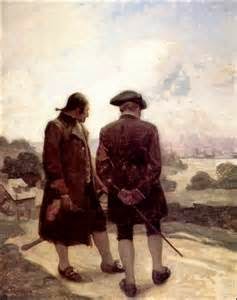Note: Recently I was contacted by author and writing teacher Margaret Ann Philbrick to review her new novel, A Minor. I am honored by this opportunity--my first little break into the writing and publishing world! (Thank you again, Margaret!) As such, this is a new experience for me. I do not typically read contemporary romance, so I have little idea what a good book in that genre should look like. I can thus only give my general opinions, which I hope are honest. Thanks for understanding!
~
The first thing I must say about this book, is that you absolutely have to listen to the music. Whether you're reading the hard format or the e-book, use the links provided to pull up all the beautiful piano pieces which weave this story together (I can particularly recommend the Tchaikovsky Concerto No. 1--but listen to them all). Ms. Philbrick has given us readers a unique glimpse into her creative process, and the emotional enhancement the music gives to the story is not to be missed.
A Minor is a tale of many loves. It opens with the estranged love of concert pianist Clare Cardiff and her husband Nero, who decide to separate temporarily for artistic reasons. While Nero stays in New England, hoping to excel at his potter's wheel out of his wife's shadow, Clare goes out to the Chicago suburbs to teach and re-group. There she discovers a new love in her student Clive Serkin, an exceptionally talented young pianist. Sensing greatness in him, she points him toward the prestigious Tchaikovsky Piano competition in Moscow. But just as Clive is becoming to her the son she never had, Clare discovers that she is developing early-onset dementia. While Nero takes her back to New England for medical testing, Clive--who has fallen innocently but deeply in love with her--must find strength in his music to go on to the international competition alone.
All through this tapestry of loves pulses the love of music--the characters' and the author's. Ms. Philbrick has a lovely and knowledgeable way of describing music in words, which anyone, not just musicians, can appreciate. However, this translation of one art form into another still leaves something to be desired, which is why you must listen to the music. It's wrapped up inseparably with the story.
Ms. Philbrick handles all her characters gracefully, especially the relationship between Clare and Clive which is most prominent in the book. Some of the secondary characters could have been more rounded out, with, however, the notable exception of Nero--the most troubled and complex figure in the story. Although possessive to the point of violence, he really does love Clare, and his greatest regret is the child they never had together. His tragic attempt to survive without her, only to lose her again to dementia, adds a dark but enriching note to the story.
Ms. Philbrick's prose style matches the formality and elegance of the classical music she describes. The only place this was a drawback was in the dialogue. While I understand the author's desire for beauty and integrity in the whole book, I feel she could actually better accomplish this through more natural dialogue. When even commonplace exchanges between characters were written in a formal style never used in real life, I found it distracting and distancing. The eloquent dialogue did work, however, in the passages where the characters were deeply discussing music--an appropriate context.
Overall, a graceful first novel and a unique literary-musical experience, A Minor will appeal to lovers of all things beautiful.













